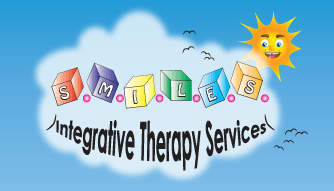Speech Therapy
S.M.I.L.E.S. provides traditional to cutting edge approaches for all aspects of the speech therapy field. Each child is an individual and will require his/her own therapeutic approach. With this in Mind, our approach is varied to offer the best possible treatment for each child. Additional specialty services include:
- EET (Expressive Expansion Tool)
- AAC (Augmentative & Alternative Comm.)
Feeding Therapy
Feeding therapy is an effective way to treat dysphagia (dis-FAY-juh), which is the medical term for someone who has difficulty swallowing food or liquids. There are a number of reasons that may cause someone to have difficulty swallowing. Dysphagia may be a result of developmental issues, nerve and muscle damage or malformation, reduced saliva and/or related medical issues, or physical obstructions.
Occupational Therapy
Occupational therapy (OT) teaches skills for the job of living! For a child, this involves addressing the "work" of a child, namely moving, playing, and learning. OT focuses on the barriers that are impeding a child from fully experiencing and enjoying these vital activities of daily living. Through working on natural play-based activities together, barriers are removed that allow children to develop new skills and excel at simply being a child!
S.M.I.L.E.S. is Now Offering Social Skills Groups!
S.M.I.L.E.S. is proud to offer Basic, Intermediate, and Advanced Social Skills Groups! Each Social Skills Group series is 6 weeks long and consists of 6 sessions. To ensure that everyone gets the most out of their groups, we require that anyone who attends the Intermediate or Advanced Group series, has a good use of social skills that have been developed in previous social groups. If we feel that your child is not ready for a group we reserve the right to recommend a different group that would be more beneficial. Additionally, each series can be repeated as many times as desired, as we understand that it takes practice to properly utilize social skills. There will always be small differences between sessions including peers that a student will be grouped with and activities that will be completed. It is recommended that everyone start in a two person group, as it allows the therapist time to get to know new students and it allows students to practice skills without being overwhelmed in a large group.



